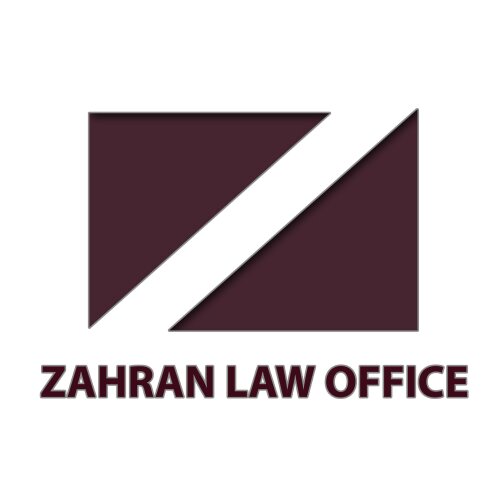Best Bankruptcy Lawyers in Cairo
Share your needs with us, get contacted by law firms.
Free. Takes 2 min.
List of the best lawyers in Cairo, Egypt
About Bankruptcy Law in Cairo, Egypt
Bankruptcy law in Cairo, Egypt is governed by the Egyptian Bankruptcy Law No. 11 of 2018. This law provides legal procedures and guidelines for individuals and businesses facing financial difficulties and seeking debt relief. It aims to protect the rights of debtors and creditors while facilitating the restructuring or liquidation of assets to settle outstanding debts.
Why You May Need a Lawyer
Engaging a lawyer experienced in bankruptcy law can be crucial in various situations. Some common instances where you may require legal help include:
- Understanding your rights and legal options when facing bankruptcy
- Assisting in the preparation and filing of bankruptcy petitions
- Negotiating with creditors and developing repayment plans
- Representing you in bankruptcy court proceedings
- Providing guidance on asset protection and exemption laws
Local Laws Overview
When dealing with bankruptcy in Cairo, Egypt, it is essential to be aware of the following key aspects of local laws:
- Types of Bankruptcy: Cairo's bankruptcy law recognizes two types of bankruptcy; individual bankruptcy and corporate bankruptcy.
- Debt Settlement: The law provides provisions for debtors to negotiate settlements with creditors to repay outstanding debts over a certain period.
- Asset Liquidation: In cases of severe financial distress, the law allows for the liquidation of assets to repay creditors. Asset liquidation follows specific procedures and involves a court-appointed trustee.
- Rehabilitation: The law also enables debtors to propose rehabilitation and restructuring plans to creditors. These plans aim to reorganize debts and allow the debtor to continue their operations while repaying creditors.
- Repayment Plans: Cairo's bankruptcy law offers provisions for the establishment of repayment plans, allowing debtors to repay debts in installments within specified timeframes.
Frequently Asked Questions
1. Can I file for bankruptcy if I am an individual in Cairo, Egypt?
Yes, individuals in Cairo, Egypt can file for bankruptcy under the Egyptian Bankruptcy Law. It provides provisions for individual bankruptcy, allowing individuals to seek debt relief and repay creditors under court supervision.
2. What happens to my assets if I file for bankruptcy?
When you file for bankruptcy, your assets may be subject to liquidation to repay your creditors. However, there are exemptions and specific laws protecting some essential assets, such as your primary residence and basic personal belongings.
3. Can I include all my debts in a bankruptcy filing?
Generally, most types of debts can be included in a bankruptcy filing, such as credit card debts, loans, and medical bills. However, certain types of debts like child support, alimony, and some tax obligations may not be dischargeable through bankruptcy.
4. How long does the bankruptcy process usually take?
The duration of the bankruptcy process in Cairo, Egypt can vary depending on the complexity of the case and the type of bankruptcy. It can range from a few months to several years, especially in cases involving debt restructuring and rehabilitation plans.
5. Will filing for bankruptcy eliminate all my debts?
Filing for bankruptcy can discharge many unsecured debts, effectively eliminating your obligation to repay them. However, certain debts like secured debts, student loans (in most cases), and recent tax obligations may not be dischargeable in bankruptcy.
Additional Resources
For further information and assistance related to bankruptcy in Cairo, Egypt, consider reaching out to the following resources:
- Ministry of Justice - National Bankruptcy Register
- Egyptian Bar Association - Bankruptcy Law Section
- Financial Regulatory Authority
Next Steps
If you are facing financial difficulties and require legal assistance in bankruptcy, consider taking the following steps:
- Consult with a reputable bankruptcy lawyer in Cairo, Egypt
- Collect and organize all relevant financial documents
- Discuss your specific situation and goals with your lawyer
- Follow your lawyer's guidance in preparing and filing the necessary bankruptcy documents
- Attend court proceedings and cooperate with the assigned trustee
- Develop a plan for debt repayment or asset liquidation, if applicable
Lawzana helps you find the best lawyers and law firms in Cairo through a curated and pre-screened list of qualified legal professionals. Our platform offers rankings and detailed profiles of attorneys and law firms, allowing you to compare based on practice areas, including Bankruptcy, experience, and client feedback.
Each profile includes a description of the firm's areas of practice, client reviews, team members and partners, year of establishment, spoken languages, office locations, contact information, social media presence, and any published articles or resources. Most firms on our platform speak English and are experienced in both local and international legal matters.
Get a quote from top-rated law firms in Cairo, Egypt — quickly, securely, and without unnecessary hassle.
Disclaimer:
The information provided on this page is for general informational purposes only and does not constitute legal advice. While we strive to ensure the accuracy and relevance of the content, legal information may change over time, and interpretations of the law can vary. You should always consult with a qualified legal professional for advice specific to your situation.
We disclaim all liability for actions taken or not taken based on the content of this page. If you believe any information is incorrect or outdated, please contact us, and we will review and update it where appropriate.












